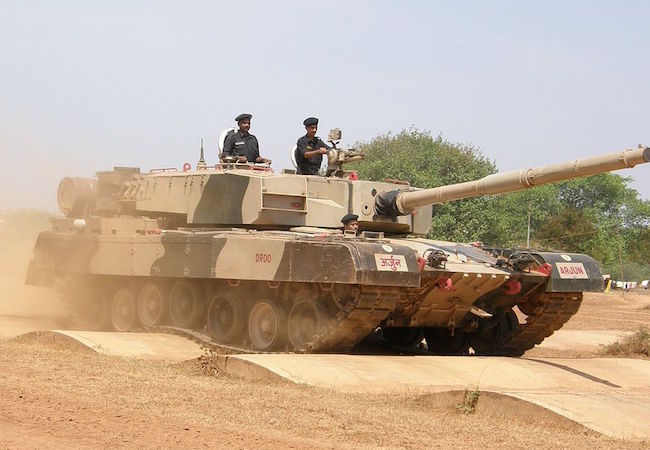
By Asma Khalid
The principle purpose of the nuclear weapon is to deter the adversary to ensure the national security. International scholars has identified that states contribute in the nuclearization process for various reasons ranging from status-quo to security threats , deterrence, offensive strategies and enhancing the state’s standing in international arena. Since beginning, the role of nuclear weapon has not much evolved since its origin. Such as during the Cold-War era nuclear capability was used to deter and maintain the balance of power among two symmetric adversaries and nuclear doctrine of the states was perusing state-centric policy. Whereas in 21st century, the role of the nuclear weapon has slightly evolved as now states go after acquiring the nuclear arsenals to overcome the conventional superiority of the adversary through nuclear deterrence. Another significant shift has seen that nuclear capability is acquired to deal with regional security concerns. Thus, since its inception factor of deterrence has remained the constant, it means that its role in military planning will not change.
Nuclear weapon plays pivotal role in national security as it is the significant component of integrated defence policy that is comprised of conventional forces and diplomacy including the nuclear capability. Nuclear armed states aims to decrease proliferation of nuclear weapons under the Non-proliferation treaty. But the steady hike has been observed in the nuclear spending of these states. The hike in nuclear spending reflects two dominating facts. First, nuclear capability has stabilizing effects among states relations by making the conflict unacceptably catastrophic. Secondly, states negate the conventional military superiority through the deterrence. Rising nuclear budget proves that these both factors are operational in South Asia.
Rising defense budget reflects that states are facing security dilemma. South Asia is significant for unparalleled nuclear build up between two nuclear rivals: India and Pakistan. Regional security dimensions revolve around the triangular relations between China, India and Pakistan. Pakistan’s military doctrine is India-centric, whereas India claims that it’s military doctrine is China specific but technically and practically most of its strategic developments are made against Pakistan. Security dilemma in South Asia is operational between two nuclear powers of region and adversarial bilateral relations have resulted in conventional and nuclear arms race. Conventional military imbalance is one of the significant factors that Pakistan is forced to respond the arms buildup triggered by India.
Defence budget is considered as most important element of national security in South Asia. In 2016-17 defence budget, India has allocated almost US$ 52.2 billion to modernize and expand its armed forces. The latest defence budget comes in the wake to achieve the objectives of “make in India” strategy to design, make, develop and produce military arms to achieve self-reliance and reduced dependence on imports, the heart of this initiative is Aero India in 2015. India’s Finance Minister Arun Jaitley in his federal budget speech stated: “we have been over dependent on imports, with its attendant unwelcome spin offs, we are thus pursuing the ‘Make in India policy’ to achieve greater self-sufficiency in the area of defence equipment.” In 2015, India has become biggest arms importer of the world, as it is trying to build its armed forces to counter Pakistan and deal with the rising military power of China. Generally, compared to previous budgets, the military expenditure and spending of India has doubled means 100 % increase in last 10 years, since 2006 as Indian military spending was $19.23 billion in 2006 to $ 39.8 billion in 2015, yet, in 2016-17 budget government announced 9.14% hike (without pensions) to spend on modernization of its forces.
Since 2004, India has increased its defence budget around 16.5 percent. Indian war-prone military strategies and its modernization drive have not only widened conventional asymmetry, but have compelled Pakistan to enhance its defensive strength. There is possibility that a constant focus on modernizing and enhancing armed forces, might give India enough courage to wage a limited conflict against Pakistan. Although, Pakistan has always rejected a conventional or nuclear arms race with India, but it cannot compromise over its minimum credible and sufficient conventional and nuclear deterrence. It is imperative that against India’s growing conventional superiority, Pakistan’s nuclear weapons capability ensures its deterrence and status quo in region.
Pakistan tries to fill the defence production gap through maintaining its credible nuclear deterrence. Additionally, many factors have compelled Pakistan to increase its dependence on nuclear weapon. Significantly, Economic and technological constrains to achieve conventional parity has played central role to shape Pakistan’s perspective nuclear policy. Despite India’s military modernization drive, it may not be able to perform an offensive strike, and it is very difficult for Indian policy makers to gain a strategic surprise over Pakistan due to its nuclear capability. Therefore, India’s increasing defence spending has been viewed as a factor of instability in regional nuclear/conventional equations and could force Pakistan to review its nuclear calculus.
Asma Khalid is a Research Associate at Strategic Vision Institute, a think-tank based in Islamabad.




